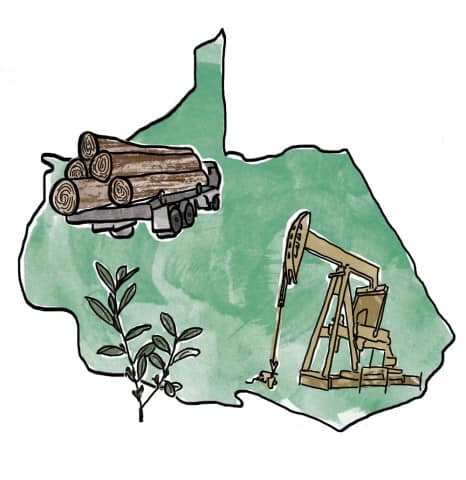PETER PARK
 Madre de Dios, a densely forested region in Peru near the Brazilian border, is home to the Mashco-Piro tribe — an uncontacted indigenous people who are being threatened by outsiders invading their lands for tourism and resource procurement purposes.
Madre de Dios, a densely forested region in Peru near the Brazilian border, is home to the Mashco-Piro tribe — an uncontacted indigenous people who are being threatened by outsiders invading their lands for tourism and resource procurement purposes.
The Mashco-Piro and other neighbouring uncontacted tribes need to be protected from outsiders. In order to do so, the Peruvian government must create and enforce protective laws to guard the uncontacted tribes’ lands from sickness-carrying trespassers. Otherwise, Peru risks the annihilation of its indigenous tribes.
“Uncontacted” tribes such as the Mashco-Piro people are culturally isolated and are relatively technologically primitive. They generally do not have peaceful contact with anyone from mainstream, globalized society due to misunderstandings and cultural differences. It has been made very clear that they would prefer to remain disconnected from the rest of the modern world.
Survival International, an organization devoted to protecting uncontacted tribes around the world, estimates that there are 15 tribes like the Mashco-Piro in Peru today. All of these tribes are extremely vulnerable to the intruders who enter their land in search of natural resources.
Profit-seeking loggers, oil companies and cocaine traffickers all invade and cross through Peruvian lands, bringing with them influenza and contagious infections like the common cold. Although these diseases are usually very minor to those of us living in the modernized world, they can prove fatal to the uncontacted tribes who lack resistance to common ailments. A statistic from Survival International reveals that following first contact, it is commong for over half of a tribe to die — in severe cases, all of them perish.
The Peruvian government has not taken enough action to protect its indigenous tribes and it seems that the government is more of an enemy to the Mashco-Piro than it is a friend. As it turns out, the government has leased more than 70 per cent of the Peruvian Amazon to oil companies, some of which is inhabited by uncontacted tribes. Not only is the invasion of indigenous lands allowed, it actually seems to be encouraged.
“What we’re seeing with uncontacted tribes today is merely a continuation of the genocide that started with the arrival of the first European colonists in the Americas. Whole populations were destroyed when outsiders stole their land and resources, and spread diseases to which they had no immunity,” Stephen Corry, director of Survival International, said in August.
Just as workers bring diseases, so do tourists. In “human safaris,” tour guides lead visitors to a place where they can observe and take pictures of the Mashco-Piro in their native settings. In addition to the obvious violation of privacy and human rights, “human safaris” again pose the problem of potentially exposing uncontacted tribes to diseases, which can be devastating.
Tourists, loggers, oil workers and drug traffickers alike should not be free to waltz into the tribes’ homes and threaten their extinction.
“To ensure the survival and protection of uncontacted Indians, all legal and illegal work in their territories must stop immediately… I urge your government to act quickly to ensure the protection of the uncontacted Indians’ territories,” Corry wrote in a letter to Peruvian President Ollanta Humala.
Survival International has asked Peru’s government to station guard posts around the Madre de Dios reserve to protect the Mashco-Piro tribe and to arrest illegal invaders. Over 130,000 people have written to Peruvian officials, begging them to protect uncontacted tribes’ land. As of yet, the Peruvian government has taken no action — but it needs to.
—
Graphic: Stephanie Mah/Graphics Editor
Leave a Reply